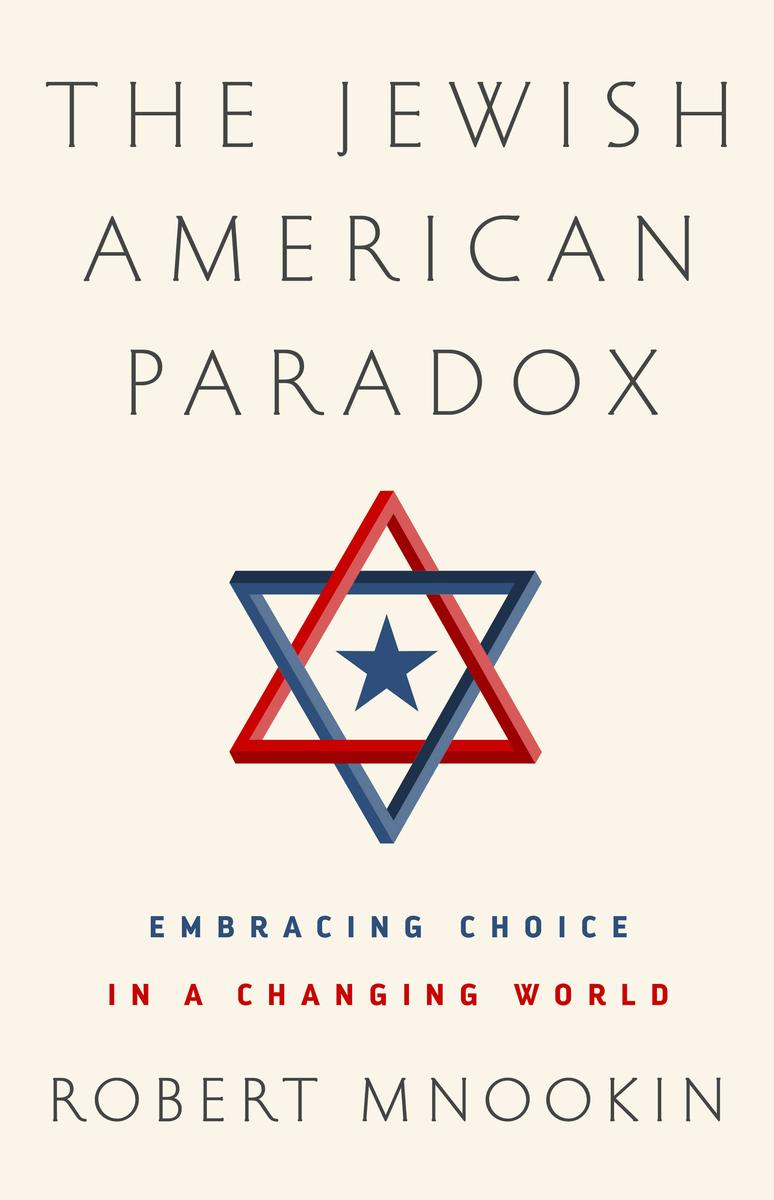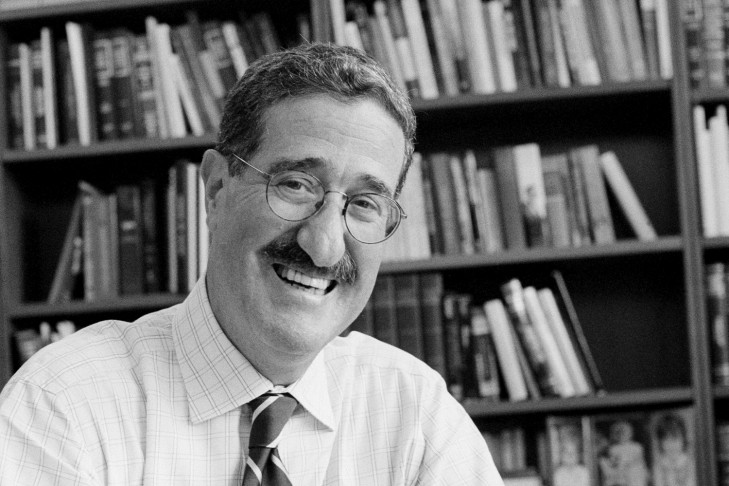Robert Mnookin’s new book, “The Jewish American Paradox: Embracing Choice In a Changing World,” addresses the unprecedented freedoms and opportunities Jews have experienced in America. Part analytic and part memoir, Mnookin engages with his own liberal Judaism and offers an optimistic assessment of American Jewry going forward. He recently spoke to JewishBoston about the many cultural and religious layers that make up today’s American Jewish communities.
You grapple with questions that Yossi Klein Halevi asks in his book “Letters to My Palestinian Neighbor”—“So who are the Jews? A religion? A people? An ethnicity? A race?”
My book explores all of these questions, and I found there is no simple answer. Since Judaism is a religion, to count as a Jew one might think a commitment to a belief and observance of Judaism’s fundamental principles is essential. However, this is not true. Judaism is unusual in that it doesn’t have a catechism of required beliefs. People proudly identify as Jews who are atheist, agnostic or non-observant, and they still “count” as Jewish.
Being Jewish requires a commitment to a certain set of values and cultural orientation. There are so many cultural strands among Jews in the diaspora, and vast cultural differences among those who identify as Jews. We can’t easily identify some set of ideas or cultural values that neatly separate non-Jews from Jews.
What are some of the drawbacks of determining Jewish identity through matrilineal descent?
Matrilineal descent is very dysfunctional for contemporary America. It’s under-inclusive in that it fails to acknowledge people as Jewish who lead thoroughly Jewish lives. They may not be considered Jewish because they happen to have a Jewish father instead of a Jewish mother. Since 2000, intermarriage in the American Jewish community has been the norm. If we pursue matrilineal descent as a determinant of Jewish identity, then only half the children born to a Jewish parent are included.
The concept of matrilineal descent becomes over-inclusive when it taxes Jewish people who no longer identify themselves as Jewish or show commitment to the American Jewish community. We treat Jewish identity as an indelible aspect of identity, like the color of eyes. Matrilineal descent doesn’t include many who should be included, and it considers others who don’t wish to be Jewish.
For some of my thinking on the matter, I relied on professor Shaye Cohen’s scholarship. For example, there is no religious pedigree noted in the biblical. Matrilineal descent was a creation of rabbinic Judaism in about the third century CE. For the American community at large, it’s outlived its usefulness. For the community as a whole, I advocate public self-identification as the community standard for identifying as Jewish.

In light of the tragedy in Pittsburgh, would you have written your chapter “Can We Survive Acceptance” differently?
I would certainly have to take into account what happened in Pittsburgh. But as I say in the chapter, I am not claiming there aren’t any anti-Semites in America. I believe constant vigilance is necessary. It’s also necessary to keep things in perspective. Compared to our grandparents’ generation, where pervasive discrimination was accepted, I believe there are unlimited social, political, economic opportunities for future generations who proudly identify as Jews.
But anti-Semitism should be a matter of concern with swastikas found in schools and other various anti-Semitic acts. Vigilance on the part of the American community is warranted. However, the picture as a whole is one of remarkable acceptance. I find it reassuring that there is no acceptance of anti-Semitism across the political spectrum. No mainstream party is adopting anti-Semitic tenets. Things, however, are different in a number of countries in today’s Europe.
You understand intermarriage as yet another layer of the American Jewish experience. How has it impacted our contemporary experience?
The meaning of intermarriage today is so different than it was 75 years ago. Back then it often reflected a desire to leave the community. Another consequence was often if a spouse didn’t convert to Judaism, the community would not accept the family. That isn’t true anymore. Marriage in America is predominantly viewed as a matter of individual choice. A person choosing to marry someone who isn’t Jewish in no sense represents a desire to abandon one’s Jewish identity.
In fact, a large number of non-Jewish spouses who have not converted are helping to raise Jewish children in America. If you go to Reform congregations today, spouses who have not converted are fully present at High Holiday and Shabbat services. Their acceptance as part of those religious communities is a good sign. The Conservative movement today is struggling with those issues. Conservative rabbis are trying to take steps to embrace the unconverted in their community. Although a significant fraction of their congregant’s children intermarrying is high, they are still not officiating at intermarriage ceremonies.
Under the big tent of public self-identification that I talk about in the book, I support the freedom of different institutions to set their own standard. But I don’t want to see those standards imposed on the community as a whole.
I’m optimistic. Boston is a vibrant Jewish community. People are involved in all kinds of activities and Jewish institutions. I love Boston’s diversity. There are many Jews who are Jewish in so many different ways.
This interview has been edited and condensed.



